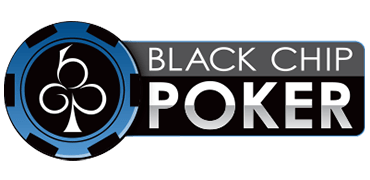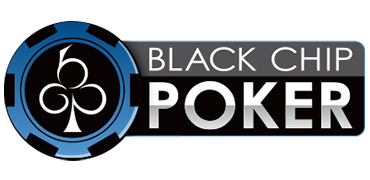Some players wonder, what is a overcall in poker? The word has two definitions.
- Calling a bet or raise after one or more other players have also called.
- Calling more often than you should and playing “loose”
When one or more players have already called a bet in front of you, the pot is starting to get larger. A lot of players see this as an extra incentive to overcall and see another card. You might indeed win a larger pot, but there are lots of reasons to fold in these spots, rather than overcall.
We’re going to show some examples, then explain the thought process behind the overcall in poker.
Examples of Overcalling in Poker
Let’s view some real examples of the overcall from poker professionals.
Example #1
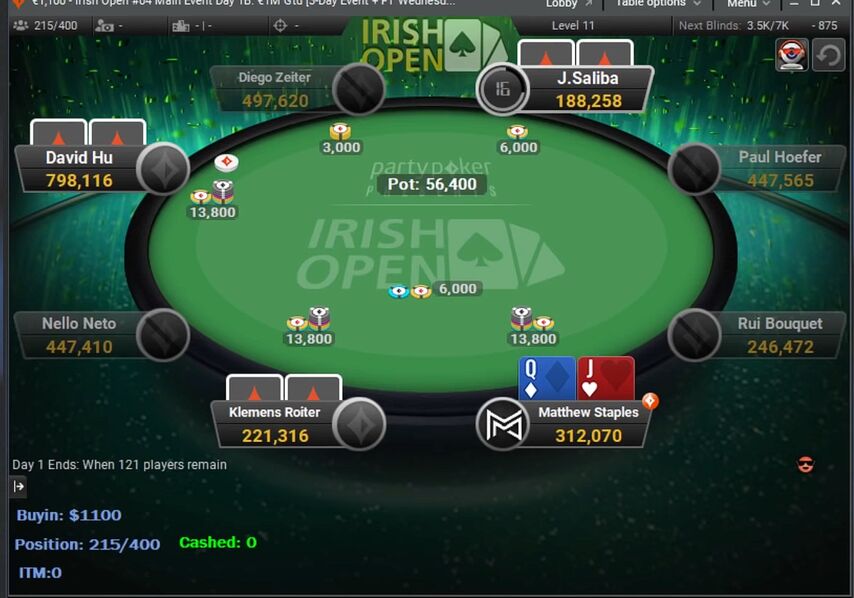
Starting off, we’ve got Matthew Staples playing the Irish Open on partypoker. He makes a preflop raise of around 2x the big blind size and gets two callers. This means that David Hu has overcalled, while Klemens Roiter has cold called.
Example #2
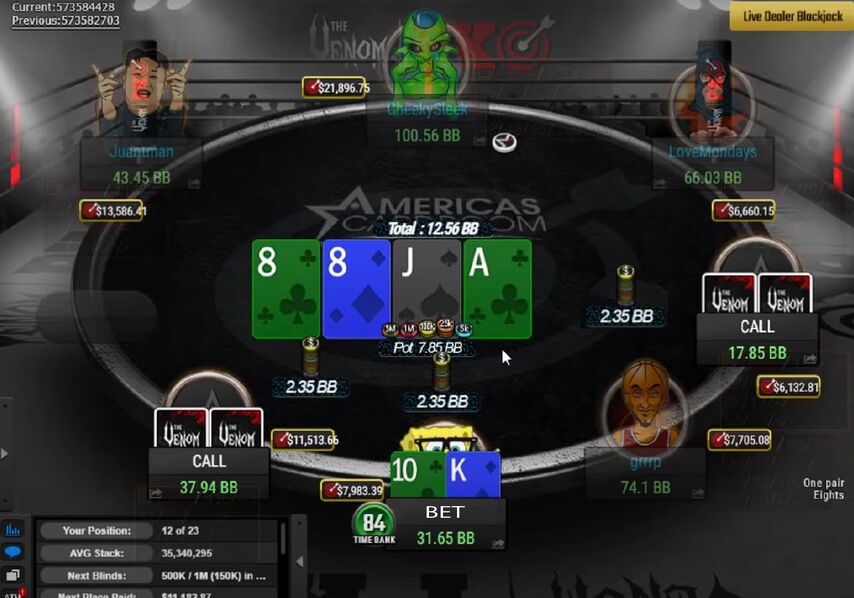
This is the Venom tournament at Americas Cardroom (ACR). We see a bet from the player with K♦ 10♣, holding a gutshot straight draw. There is one cold call to this player's left, plus an overcall from the player in the big blind position.
Example #3
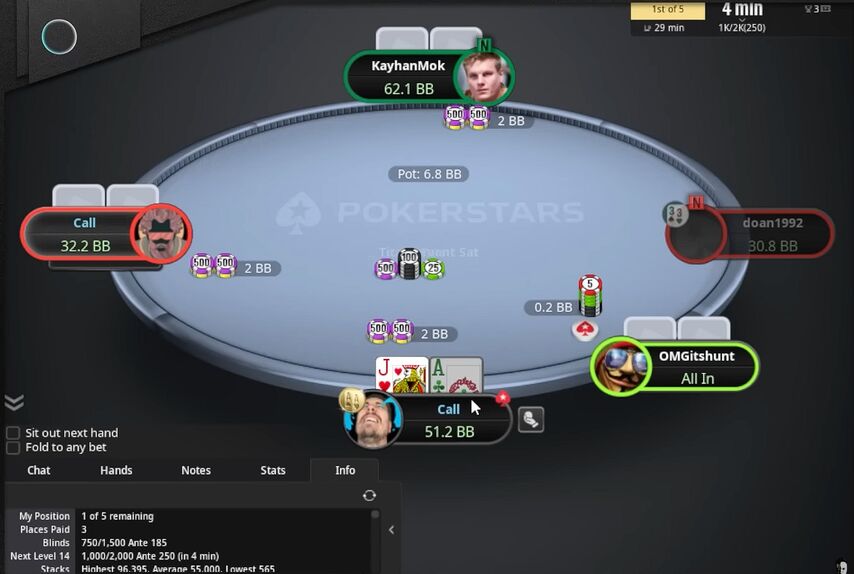
For our third example, fan-favorite Lex Veldhuis is playing a satellite tournament on PokerStars. If the player beside Lex had a full stack, then Lex’s call would be considered an overcall. Since the player only has 0.2 BBs, and can’t match the BB wager, Lex Veldhuis is cold-calling. The player after Lex is overcalling.
If you want to test out any of the poker sites we used in these examples, remember this; Signing up with a new poker site gives you two major benefits.
- You can give your bankroll a boost because new players can get their deposits matched by the poker rooms.
- You might discover softer players at the tables, with more traffic and better poker games.






When to Overcall in Multiway Poker Hands
With one or more players calling before you, the pot is becoming larger and larger. We all like big pots, but consider a few things before you overcall.
Does your hand need to improve?
When you overcall, you might have a hand already (one pair or others) or a draw that can improve your hand on future betting rounds. How many of the cards in the deck will improve your hand? It’s important to count your outs when you overcall – don’t overcall without a plan.
Sometimes, you will have a very good hand, or the nuts, so an overcall is justified. You can build a much larger pot with multiple opponents, but a raise might end the action.
What are your “clean outs”?
A “clean out” is a card that doesn’t complete a draw for your opponent, but completes a draw for you. Of course, you don’t know what your opponents' hands are, but some cards can help them, while others are safe. Cards that complete flush draws or straight draws aren’t clean – unless they help you.
If the flop cards are K♥ 10♣ 7♣ , and you have J♥ Q♦, what are the clean outs for a straight?
A♥ A♠ A♦ 9♥ 9♠ 9♦
Should you make a 3-bet instead of an overcall?
Mixing 3-bets and overcalls is important to playing a balanced style of poker, meaning a mixed strategy. If you always call, you’ll be too predictable. If you know how to use ranges in poker, you can choose which hands to 3-bet with. Instead of overcalling when you have a set or two pair, you should consider 3-betting at least some % of the time, including other hands too.
Freerolls can give you a place to practice without any cost – but still offer cash to win. Gain some experience in our freerolls and play for cash and tournament tickets.
- Increased first deposit bonus
- Increased rakeback and reloads
- Help with deposits and cashouts
- Access to private freerolls
- Round-the-clock support
Use Poker Ranges to Overcall Optimally
Putting your money in the pot when you are an underdog is obviously not a good idea.
But how can you know when you should overcall, raise, or fold?
Well, if you aren’t thinking about poker in terms of ranges, it’s time to start. Beginners might suspect their opponents could have one or two hands, but they aren’t looking at the bigger picture.
That’s what a range is. You’re considering the bigger picture, meaning, all of the hands it’s possible your opponents could have. Armed with this info, you can start raising, calling, and folding, knowing that there is a solid thought process behind your decision.
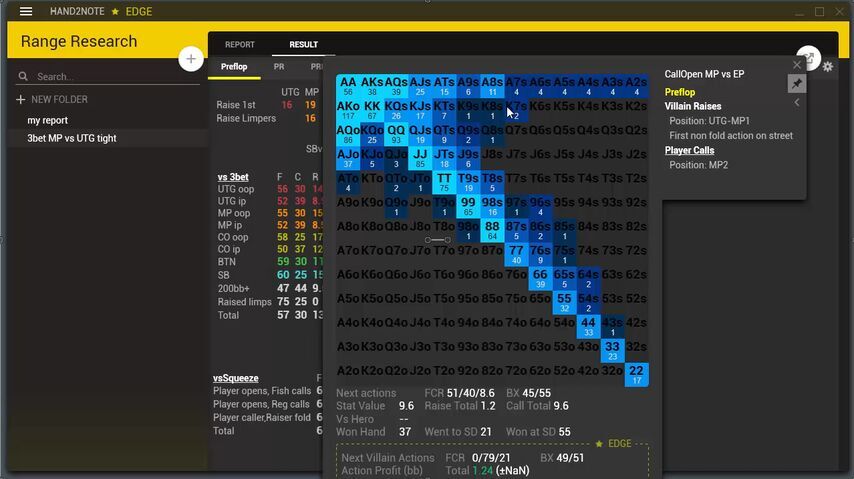
Check out the Range Research tool from Hand2Note, where you can import your own hands and analyze your range and your opponents.
You can also use Hand2Note’s Leak Finder to evaluate your sessions and see if you are overcalling too often.
Why Should You Build Ranges in Poker?
By knowing your opponents’ position at the table, preflop action, and tendencies, you can build ranges. As the hand continues and you get more information, you can usually reduce the number of hands in your opponent's range.
This can answer lots of questions, such as:
- What hands do your opponents have?
- What are your chances of winning against your opponent’s (possible) hand?
- Should you overcall and see another card?
- Should you raise instead of overcalling?
- Are you wasting chips with this overcall?















